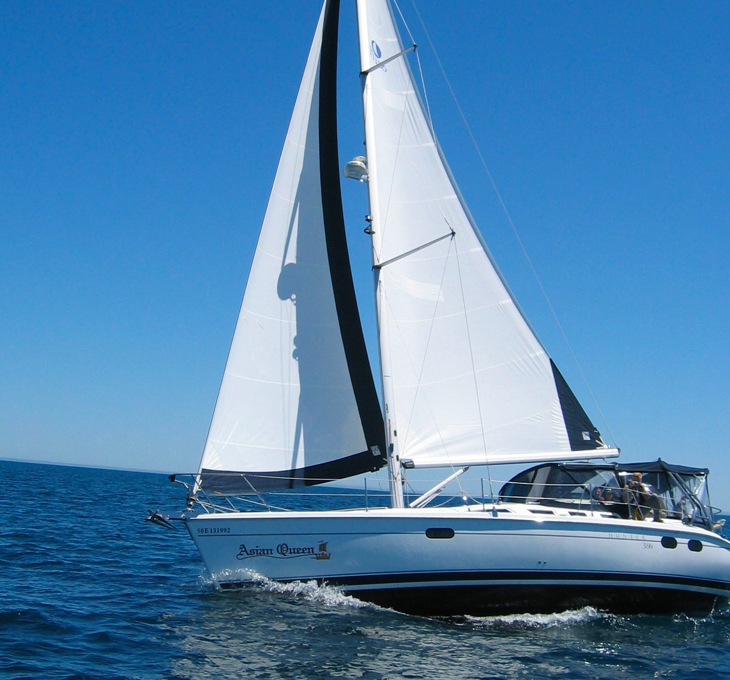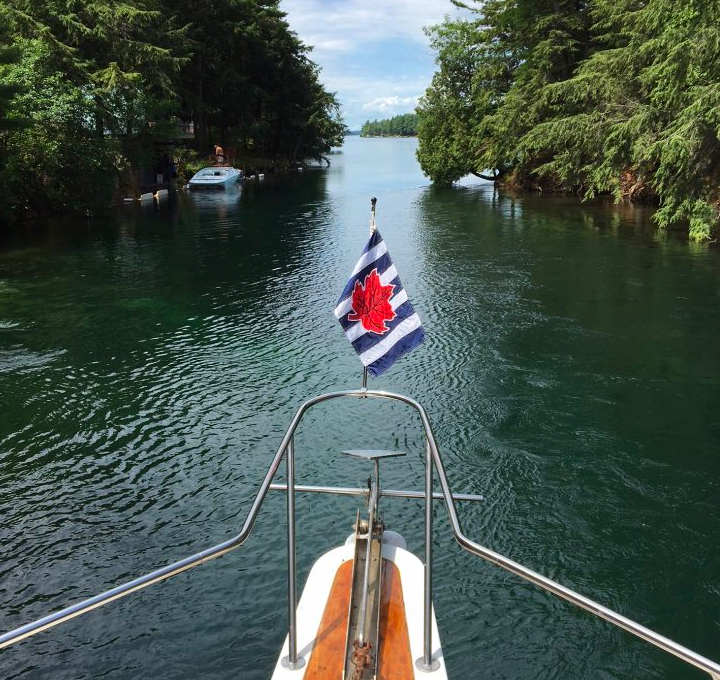Techniques
Who has Right of Way when Boating?
Who has the “Right of Way” in various situations is set out by regulated Marine Rules of the Road.
Proper Anchoring Practices Can’t Be Stressed Enough
The anchor, and the line or chain attached to it (the “rode”), are very important pieces of equipment. An anchor can make the difference between safety and disaster.
Easing Anchoring Anxiety
Each anchorage has unique characteristics. With experience, as you enter the anchorage, you learn to read not only the physical layout but also the placement of existing boats at anchor and cottages to best select your spot for the night.
Lock Etiquette
Tips for boaters on how to safety and efficiently navigate locks by boat and what to expect before you arrive at a Parks Canada lock station.
Navigation Lights Are A Requirement, Not An Option
If a boat is operated between sunset and sunrise or in restricted visibility – in fog, for example – it must display navigation lights.
Nighttime Boating Tips
Pre-planning and having the right equipment in good working order is the key to success and enjoyment.
Tips for Towing and Trailering a Boat
Those of us with smaller boats spend almost as much time trailering as we do on the water or at a show. We prepare the boat but may not spend the time ensuring that our trailer is prepared and properly hooked to our vehicle.
VHF Radio
VHF Radio vs Cell Phone
Quite often we get asked about the value of VHF marine band radios as means of communication vs a cell phone.
The answer to that is quite simple.
Top 4 Mistakes Boaters Make When Using VHF Radios
Get the most out of your VHF radio and ensure you’re heard every time.
Your VHF/DSC Radio - a powerhouse
Your radio ranks perhaps only second to your and your passengers’ life jackets. Here’s how to use it safely, expediently and knowledgeably.
Stay Extra Alert with Automatic Identification System (AIS) Tech
Knowing other boats’ vital navigation information provides safer experiences on busy waterways.
How to Call for Help in a Boating Emergency
Your boat is in danger, a passenger has fallen overboard, or you’re stranded on open water. How do you get help? Minutes matter. Make sure you know what do before you face a boating emergency. It could make the difference between life and death.
Weather and Environment
Keeping a Weather Eye Out
Boaters must assess the weather and make a decision before heading out on the water and know how to interpret weather changes while on the water.
Waterspouts
What are they, when can they occur and what should you do if you encounter one while boating.
Near Shore Speed Limits
It is Your Legal Responsibility to Operate Your Boat at a Safe Speed and Be Aware of Your Wake.
Spring
Spring Boating Tips
The days are getting longer ~ if not much warmer. It’s time to get out on the water – or at the very least, prepare to get out on the water.
5 Early Spring Fishing Tips
Most anglers yearn for spring when the ice has receded from the lake and they can get back on the water to visit favourite fishing holes. Here are a few tips to make sure that you don’t get caught by an unexpected breakdown or emergency on the water.
5 Cold Water Survival Tips
By doing a little preparation and learning the truth about hypothermia, you can increase your chances of surviving an unexpected immersion into very cold water.
Additional Tips
Boating Etiquette
Everyday good manners are only common courtesy, customs are derived from traditions.
Life Jackets, Vests and PFDs: How to Choose
Finding the right personal flotation device (PFD) can seem like a daunting task and extends beyond finding one that fits and floats. After all, not all vests work for all people, and no one vest works well for all activities.
Encourage Your Teenager to wear their PFD
Here are some suggestions on how to encourage PFD wear from your teen.
Inflatable Personal Flotation Device (PFD) Requirements
nflatable Lifejackets (PFDs) have been designed for wearability. However, if you decide that an inflatable best suits your boating needs, it is important that you understand its limitations, how to use it and how to care for it.
Boat Ramp Etiquette
When waiting for the use of a ramp and the lineup can be over an hour long it is very important to be efficient. When boaters have had a late night or trying to get an early start they can often be brutal with their suggestions if you hold them up. The exercise of proper ramp etiquette is still important.
Tips for Buying a Boat Online
Have you ever wondered how to find great deals or rare items? Here is a different take on searching the classifieds.
First Aid On The Water: Expect The Unexpected
First aid on the water is something boaters may not think about until there is an incident. Being prepared by taking first aid training and having an up-to-date, fully stocked first aid kit can make all the difference when the unexpected happens.
How to get a Pleasure Craft License for your boat
There are two ways to apply for a Pleasure Craft License. You can apply by regular mail or you can now apply online.
Welcome to CPS-ECP, we are here to help you begin your boating journey!
CanBoat Courses, Events and Resources

CanBoat Event Calendar
We offer a range of events and services nationally.
Get Your Boating License
The CanBoat Pleasure Craft Operator Card (PCOC) is good for life.





